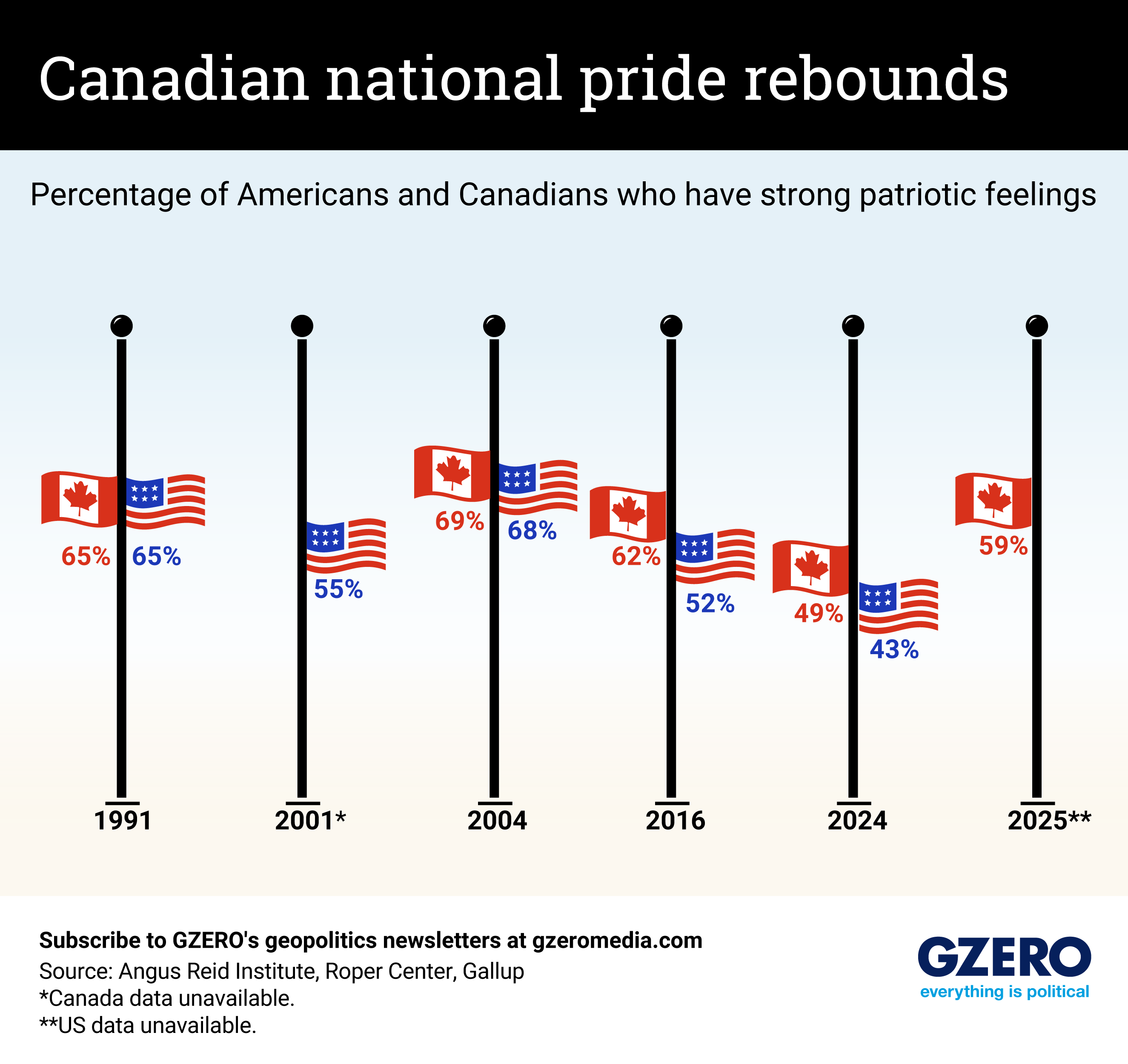February 06, 2025
Since taking office, Donald Trump has repeatedly threatened the US’s closest ally, Canada, with high tariffs and statehood, sparking a surge of national pride among Canadians. The tension has manifested in symbolic acts of resistance: coffee shops renaming Americanos to “Canadianos” and premiers threatening to ban American products. New polling shows that this defiance isn’t anecdotal.
An Angus Reid poll conducted over the weekend reveals a dramatic shift in Canadian patriotism. Strong patriotic feelings increased from 49% to 59% in just one month. Canadian pride is up 12 points in British Columbia, 13 points in Quebec, nine points in Ontario, and a whopping 15 points in Atlantic Canada. The prairie provinces saw more modest increases, with Alberta up three points and Saskatchewan up four points, while Manitoba experienced a slight decline.
Despite a last-minute deal to delay 25% tariffs, the threat deeply unsettled Canadians. Given the US’s status as Canada's largest trading partner, potential tariffs could trigger a recession and imperil thousands of jobs. Accordingly, perhaps the poll’s most striking finding was that 91% of Canadians now want to reduce dependence on the US, prioritizing national economic independence over reconciliation.
More For You
- YouTube
In this Quick Take, Ian Bremmer weighs in on the politicization of the Olympics after comments by Team USA freestyle skier Hunter Hess sparked backlash about patriotism and national representation.
Most Popular
Bad Bunny during the Super Bowl LX halftime show press conference at Moscone Center.
Kirby Lee-Imagn Images
100 million: The number of people expected to watch the Super Bowl halftime performance with Bad Bunny, the Puerto Rican superstar and newly minted Album of the Year winner at the Grammys.
Alysa Liu of Team USA during Women Single Skating Short Program team event at the Winter Olympic Games in Milano Cortina, Italy, on February 6, 2026.
Raniero Corbelletti/AFLO
Brazilian skiers, American ICE agents, Israeli bobsledders – this is just a smattering of the fascinating characters that will be present at this year’s Winter Olympics. Yet the focus will be a different country, one that isn’t formally competing: Russia.
What We’re Watching: Big week for elections, US and China make trade deals, Suicide bombing in Pakistan
Feb 06, 2026
Japanese Prime Minister Sanae Takaichi, president of the Liberal Democratic Party (LDP), appeals for a candidate during a street speech of the House of Representatives Election Campaign in Shintomi Town, Miyazaki Prefecture on February 6, 2026. The Lower House election will feature voting and counting on February 8th.
The Yomiuri Shimbun
Japanese voters head to the polls on Sunday in a snap election for the national legislature’s lower house, called just three months into Prime Minister Sanae Takaichi’s tenure.
© 2025 GZERO Media. All Rights Reserved | A Eurasia Group media company.
